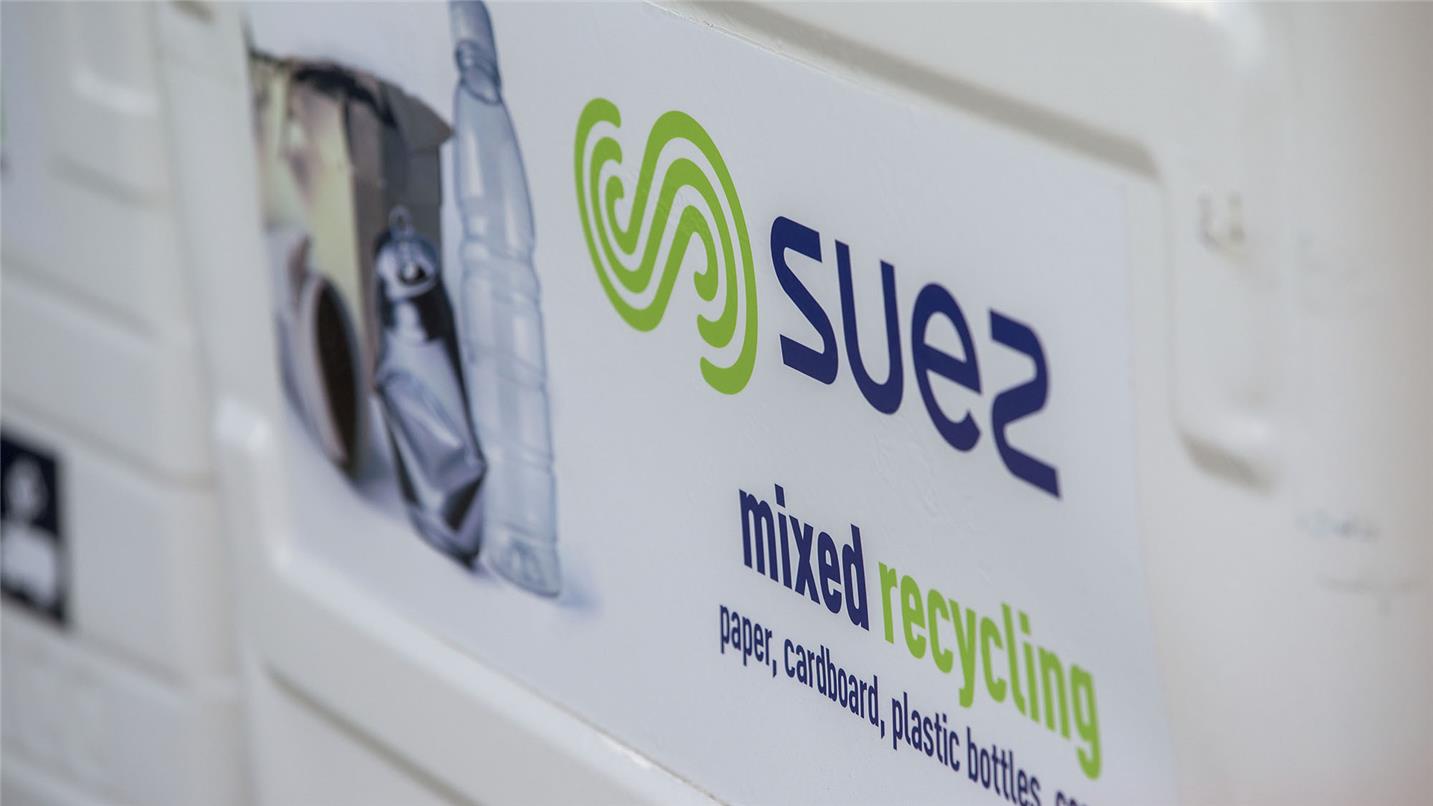The mission
The University of Northampton is leading the way on sustainability and social value within higher education institutions and has set ambitious sustainability targets, including increasing their recycling rate to 80% by 2023.
From conversations throughout the bidding process, it was clear to SUEZ that the weight data and composition analysis was of vital importance for the university, and ensuring that reporting data could be collated and shared with ease was fundamental to the success of the university reaching its recycling objectives in the next three-years.
Having successfully won the tender in August, SUEZ worked with the university to mobilise the new contract, which included 179 containers across seven university sites and needed to be delivered in time for the new semester to begin on 01 September 2020 .
Our solution
SUEZ has long-established partnerships with many universities and colleges across the UK and brings a wealth of knowledge and experience to the University of Northampton. This includes recent research into university students’ attitudes and behaviours towards waste and recycling on campus, the results of which are detailed in a report entitled Lifting the Lid Higher.
To monitor recycling performance, SUEZ introduced automated reporting along with a fully chipped and GPS-equipped container management system, which collects weight and contamination data of each container. Together these systems allow the university to review and analyse their recycling and waste data, providing key insights on waste compositions, high volume areas and contamination that will be used to help improve recycling rates on campus.
The container management and waste analysis systems have been applied to all waste streams managed for the university – general waste, dry mixed recycling, food and glass – the data from which can be interrogated to container level detail through the secure customer portal. The portal is a free tool that is supplied as part of the contract and acts as an information store for all collection data and waste transfer notes, providing transparency over the processing of the waste to ensure SUEZ deliver zero waste to landfill.
Other environmental factors were key to the procurement process for the University, including measuring the carbon output of their waste services and route efficiencies. The container management system coupled with efficient kerbside collection means there was no longer a need for the manual movement of waste across campus, resulting in lower vehicle emissions over time and also giving the on-campus team more time to dedicate to value-adding functions.
In order to help the university achieve its ambitious recycling targets, SUEZ provides a fulltime, dedicated account manager to supervise the new service provisions and to continue to work with the university, monitoring its recycling rates and progress towards their target, giving insight and instruction on how to increase recycling based on the waste analysis data.
Their dedicated account manager also provides advice and guidance on waste reduction practices, such as introducing a ‘coffee cup tax’ across the campus or TerraCycle collections for specific high-volume wastes that are not included in the main recycling stream. Reuse opportunities will also be explored for furniture, computer equipment, TV’s and clothing recycling by communicating with local charities and creating on-campus recycling areas.
Research into recycling trends at higher education institutes has taught SUEZ that behaviour change communications can be very effective. Using the ISM model (standing for ‘Individual, Social, and Material’), which has been described as the most comprehensive of the available tools, SUEZ brings stakeholders together around shared behavioural challenges, identifying the factors shaping those behaviours, and then working together to devise whole system approaches that affect lasting change, both in the behaviours and the systems that perpetuate them. As part of the communications support, SUEZ participates in the new student welcome week offering introductory talks, and also provide training and resources to support ‘recycling weeks’ to promote best practice and educate the students and faculty on the correct segregation, all with a view to increasing the university’s recycling and recovery performance on site.
The results
The mobilisation of the brand-new service provision was a success and completed on-time in just three short weeks despite the added challenges of the COVID-19 pandemic.
Neil Smith, Business Development Manager for SUEZ recycling and recovery UK, said: “We are delighted to have been awarded this new contract and very much look forward to working together to improve sustainability on campus and deliver an efficient waste and recycling service for the students and faculty of the University of Northampton.”
We have been impressed with how efficiently SUEZ was able to mobilise this new contract and have continued to surpass our expectations during this first month of full-service delivery.We are looking forward to working with our new recycling partner for years to come, continuing to build on our shared passion for the environment and working together to reach our 2023 recycling target.John Howes-External Services Manager | University of Northampton
179
containers across seven university sites
0
waste to landfill
80
%
recycling and reuse rate target
